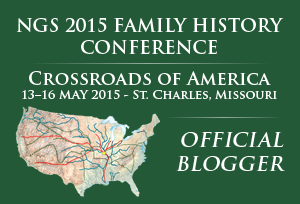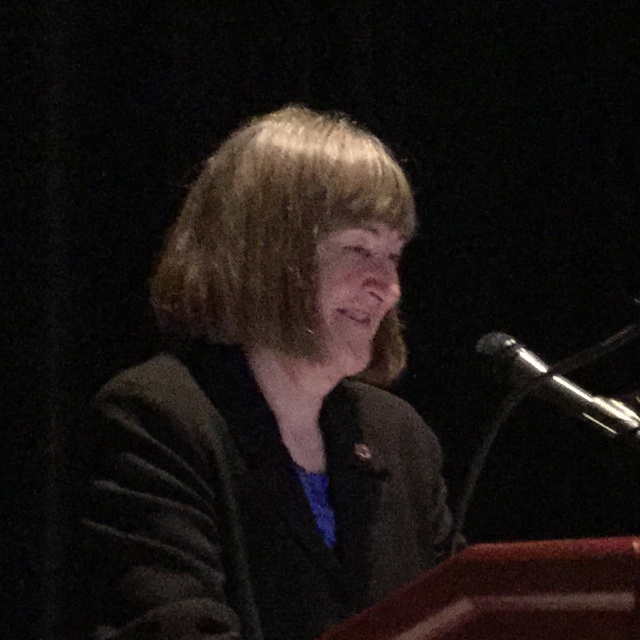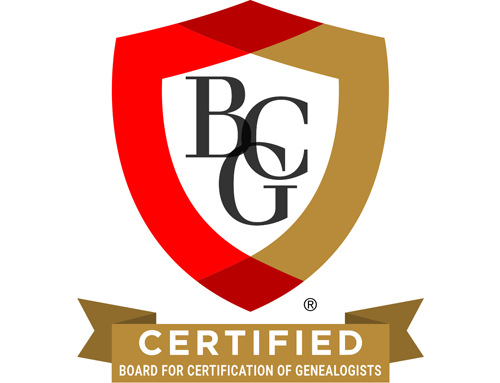SpringBoard, an official blogger for the 2015 NGS Family History Conference, is pleased to offer a review of this skillbuilding lecture, presented Saturday, 16 May, 2015:
S401: Melinda Daffin Henningfield, MS, CG, “Investigate the Neighborhood to Advance Your Research,” reviewed by Sara Scribner, CG
Melinda Daffin Henningfield, CG, begins her beautifully illustrated lecture with a family photo. It shows her grandmother atop a donkey, grandfather leaning over the donkey smiling, a man holding the halter, and three men in the background. She points out the photo represents a “neighborhood” of two ancestors and four of their associates. This gives a whole new way to conceptualize a neighborhood and a group of associates.
Henningfield mentions census neighborhoods, tax-list neighborhoods, religious neighborhoods, land neighborhoods, ship-manifest neighborhoods, and cemetery neighborhoods. She identifies the many names this type of research goes by: FAN (friends, associates, and neighbors) club or principle, whole-family research, community research, assemblages, or cluster research. One memorable slide captures the concept with a grape-leaf cluster labeled friends, associates, neighbors—and enemies.
She also notes that some genealogists resist neighborhood research because it is time consuming and may not directly identify ancestors by name. However, doing this type of research can uncover important information about those ancestors. Henningfield’s case studies illustrate this. One example on Wisconsin Prussians shows how she found an ancestor’s town of origin, even though no United States record naming him listed anything more than Prussia. Her method was to research each member of the subject’s FAN group, paying special attention to those who appear in more than one neighborhood. This identified many associates whose American religious records named a single Prussian village. Armed with a probable Prussian location, she found the ancestor’s baptismal record there.
 A recording of this lecture may be ordered from Jamb Tapes, Inc.
A recording of this lecture may be ordered from Jamb Tapes, Inc.
CG, Certified Genealogist, CGL, and Certified Genealogical Lecturer are service marks of the Board for Certification of Genealogists, used under license by Board-certified genealogists after periodic competency evaluation, and the board name is registered in the US Patent & Trademark Office.


